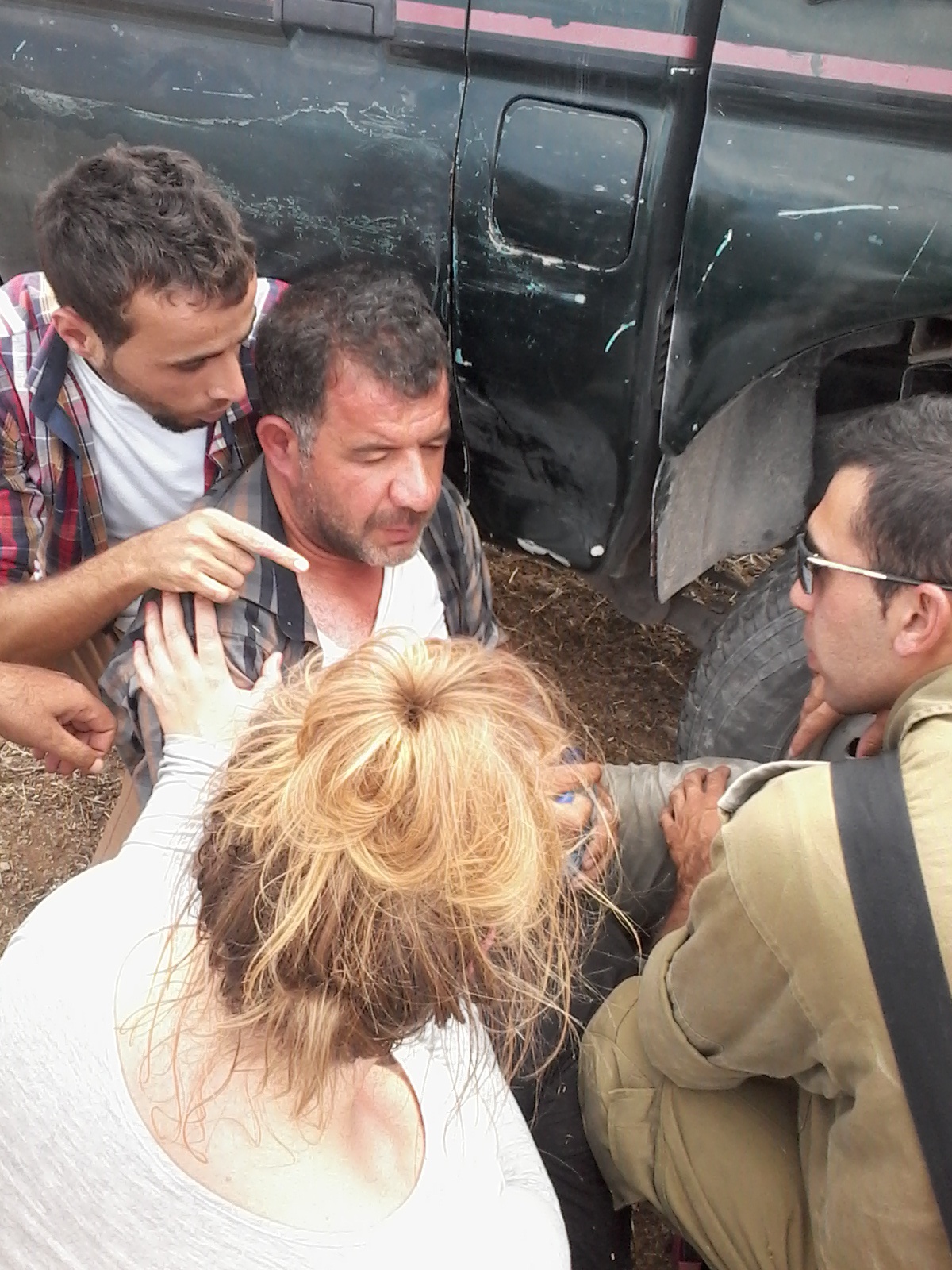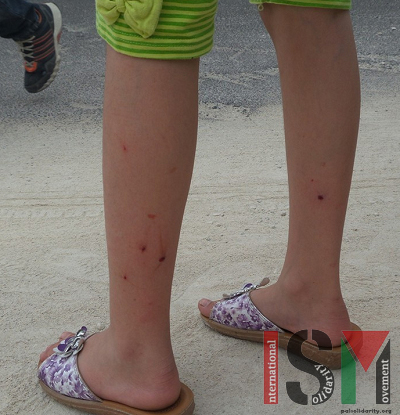Category: Reports
-
Two arrests, three detentions and over 100 tear gas grenades used against children in Hebron since the school year began
2nd October 2014 | International Solidarity Movement | Hebron, Occupied Palestine “The child are having problems concentrating on their school work due to their emotional state and the stress due to the daily attacks by the occupation forces, which are continuously escalating.” Stated Hebron teacher, Shukri Zaroo, to the International Solidarity Movement (ISM). Children in al-Khalil (Hebron)…
-
Israeli soldiers delay medical treatment to arrested Palestinian
1st October 2014 | International Solidarity Movement, Nablus Team | Khirbet Al-Tawil, Occupied Palestine On Monday morning, the 29th of September, settlers and the Israeli army invaded the village of Khirbet Al-Tawil east of Aqraba. They destroyed the village’s main electrical cable and water pipe. The inhabitants of the village have been without electricity and running water since…
-
Violence and detention of children in Hebron
28th September 2014 | International Solidarity Movement, Khalil team | Hebron, Occupied Palestine This afternoon Israeli border police entered through Salaymeh checkpoint and fired 14 tear gas grenades and one stun grenade at children leaving school. Several teenagers threw stones towards the checkpoint and the soldiers began firing tear gas. An ISM activist present stated, “Four young girls were walking past the boys throwing…



